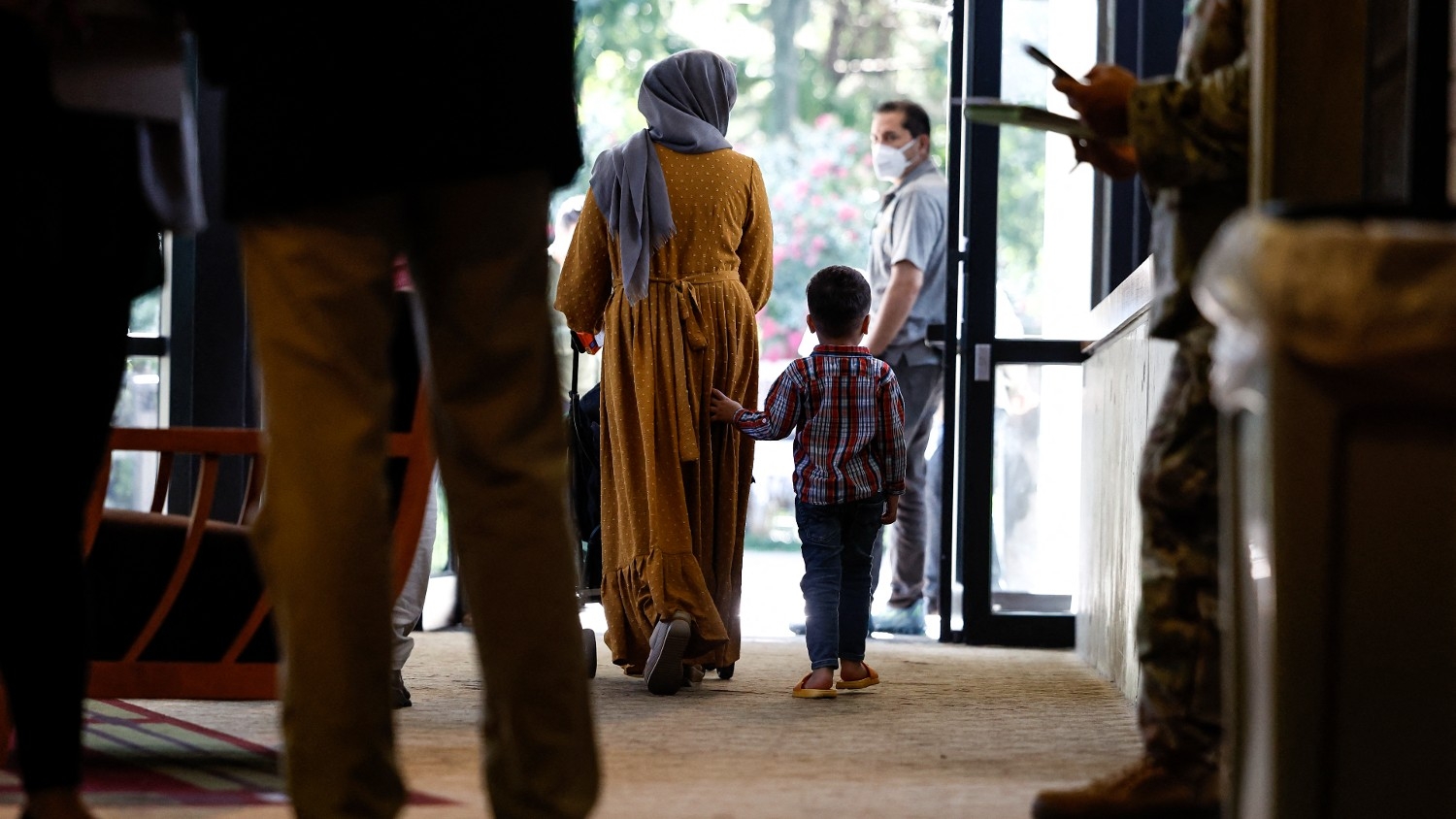Afghans remain hopeful amid repeated delays to permanent US legal status

Tens of thousands of Afghans who fled to find refuge in the US following the American withdrawal from their homeland remain in legal limbo as legislation that could provide them a pathway to permanent residency has hit hurdle after hurdle this year.
The Afghan Adjustment Act, AAA, was introduced in 2022 by a bipartisan group of US senators. The bill, if it became law, would expand visa access to Afghan refugees. It has received growing support from members of Congress but each time it has been put to a vote it has failed.
It was dropped from a major US spending bill in December 2022, and while it has since been reintroduced, it has yet to be voted on.
"The Afghan Adjustment Act continues to have steadfast, bipartisan support in both chambers of Congress... and we are steadily adding bipartisan support from both sides of the aisle," said Arash Azizzada, co-director for Afghans for a Better Tomorrow.
"That remains promising, as frustrating as it's been that a pathway to legal status for newly arrived Afghans still has not been established. We will continue to hold members of Congress accountable," Azizzada told MEE.
New MEE newsletter: Jerusalem Dispatch
Sign up to get the latest insights and analysis on Israel-Palestine, alongside Turkey Unpacked and other MEE newsletters
Azizzada added that the situation many Afghan evacuees are in is a "bipartisan responsibility", given the US military role in occupying Afghanistan for the past two decades through both Republican and Democratic administrations.
"The United States is responsible for the harm it has caused, and must now repair that," he said.
Without the legislation, Afghans who came to the US have only two years to stay in the country.
'Cornerstones and pillars of their communities'
During the US withdrawal from Afghanistan in August 2021, tens of thousands of Afghans rushed to the airport in the hopes of leaving the country for the US, and also out of fear of the Taliban-run government.
Since then, the US has resettled roughly 86,000 Afghans, according to data from the Department of Homeland Security. Most of them were admitted with Special Immigrant Visas or through the parole process.
The humanitarian parole authority is an immigration mechanism that bypasses the lengthier immigration or refugee processes.
But this process only grants them temporary legal status in the US for two years.
In response to the failure so far of the AAA to pass, the Biden administration announced in June that it would allow Afghans who "re-parole" to extend their legal status in the country for another two years.
However, the policy falls short of providing Afghans with a long-term solution and path to remaining in the US.
In a statement on Tuesday, the Department of Homeland Security pointed to Congress's need to pass the Afghan Adjustment Act.
"The Administration remains committed to working with Congress to pass the Afghan Adjustment Act to provide a durable, streamlined immigration pathway for those currently on parole," it said.
Azizzada said that, in spite of the Biden administration and Congress failing to provide a concrete solution, Afghans have taken it upon themselves to support new arrivals, helping them relocate to the US and become involved in their local communities.
"Afghans now reside in 49 states plus the District of Columbia. They are becoming cornerstones and pillars of their community, despite Washington DC's inactions," he said.
"While many remain anxious about their legal state, they remain hopeful America will do the right thing. Nobody believes more in America's promise than our new Afghan neighbours. And that type of optimism and hope fuels our work."
Middle East Eye delivers independent and unrivalled coverage and analysis of the Middle East, North Africa and beyond. To learn more about republishing this content and the associated fees, please fill out this form. More about MEE can be found here.





